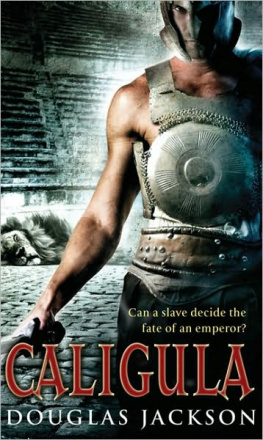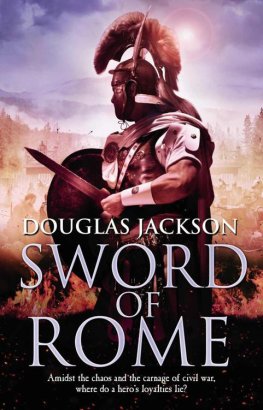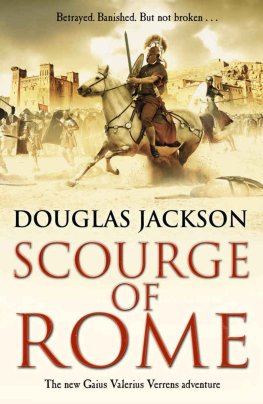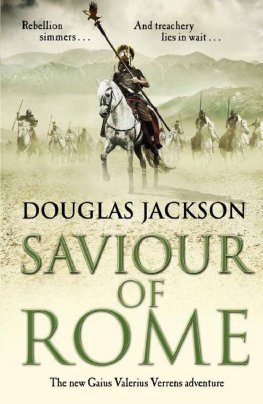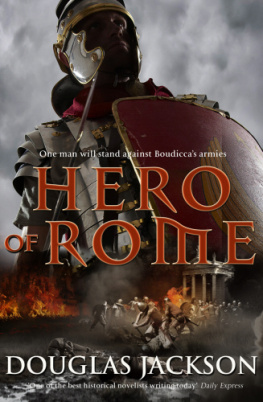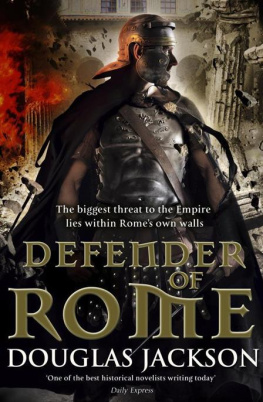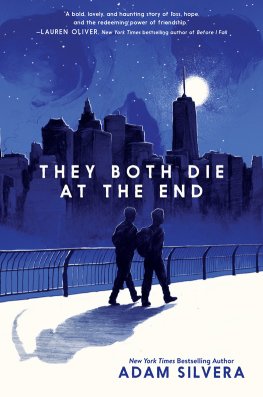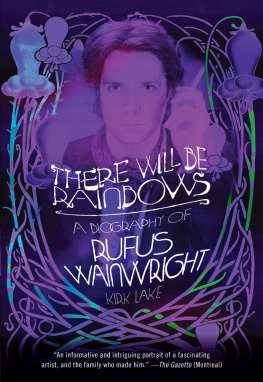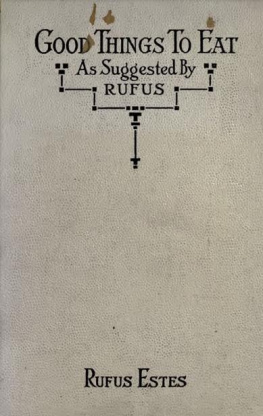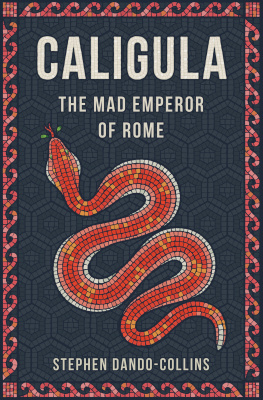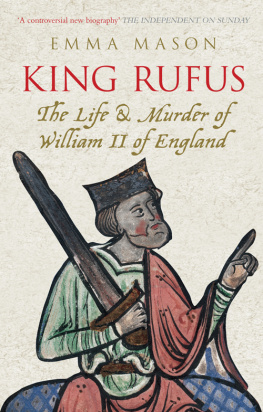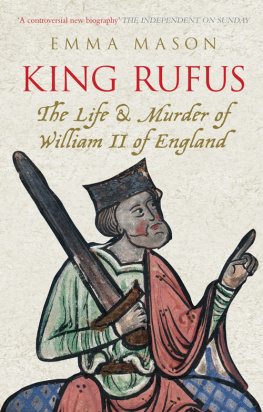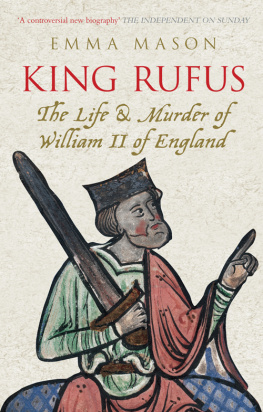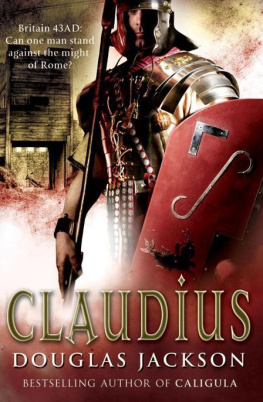Table of Contents
Douglas Jackson was born in Jedburgh in the Scottish borders and now lives in Bridge of Allan. He is an assistant editor at the Scotsman .
www.rbooks.co.uk
CALIGULA
www.rbooks.co.uk
CALIGULA
Douglas Jackson

This eBook is copyright material and must not be copied, reproduced, transferred, distributed, leased, licensed or publicly performed or used in any way except as specifically permitted in writing by the publishers, as allowed under the terms and conditions under which it was purchased or as strictly permitted by applicable copyright law. Any unauthorised distribution or use of this text may be a direct infringement of the author's and publisher's rights and those responsible may be liable in law accordingly.
ISBN 9781407033853
Version 1.0
www.randomhouse.co.uk
TRANSWORLD PUBLISHERS
61-3 Uxbridge Road, London W5 5SA
A Random House Group Company
www.rbooks.co.uk
First published in Great Britain
in 2008 by Bantam Press
an imprint of Transworld Publishers
Copyright Douglas Jackson 2008
Douglas Jackson has asserted his right under the Copyright, Designs and Patents Act 1988 to be identified as the author of this work.
This book is a work of fiction and, except in the case of historical fact, any resemblance to actual persons, living or dead, is purely coincidental.
A CIP catalogue record for this book
is available from the British Library.
ISBN: 9781407033853
Version 1.0
This electronic book is sold subject to the condition that it shall not by way of trade or otherwise, be lent, resold, hired out, or otherwise circulated without the publisher's prior consent in any form other than that in which it is published and without a similar condition including this condition being imposed on the subsequent purchaser
Addresses for Random House Group Ltd companies outside the UK can be found at: www.randomhouse.co.uk The Random House Group Ltd Reg. No. 954009
For Alison, Kara, Nikki and Gregor who always believed
Prologue
The Rhine frontier AD 18
The boy crept stealthily through the low bushes, eyes darting right and left for any sign of the enemy. Today he imagined himself the last survivor of the battle of the Teutoburg Forest, the only man from the three massacred legions who could still complete his mission and kill the Cherusci king, Arminius. He came to the edge of a small clearing and stopped. There was his quarry. He drew the small dagger that doubled as his legionary's gladius and charged the Cheruscan hordes, smiting their champions one by one. There! And there! Die, Arminius! Die for your treachery!
When the victory was complete, he stood among the fallen bodies of his enemies, breast heaving beneath the light armour that protected his chest. Except for the helmet, he wore the complete uniform of a light infantryman of the Twentieth legion: red tunic, mail vest, a thick belt that held loops for his equipment, leather greaves covering his shins, and sandals. The uniform had been specially made by the quartermaster to fit a six-year-old and when he wore it his heart filled to bursting with pride.
He brushed the unruly dark hair from his eyes and began to pick up the enemy dead. The thin green saplings would have to dry first, but they would do for the fire. Collecting firewood gave him the excuse he needed to come to the woods. He loved the woods; loved their sharp, resin smell and the way the wind moved through the treetops, loved the way the sun pierced the leaf canopy to create strange, shifting patterns on the forest floor. The birds and the beasts fascinated him, and he was always on the lookout for something new to discover. His mother didn't like him coming here. She worried too much, and would have preferred him to stay close to the camp and try to make some friends of his own age.
What did he need with friends when he had the soldiers? The soldiers loved him as they did his father, Germanicus. Germanicus was a great leader and a favourite of the Emperor. The boy could list every one of his victories and had even touched the two eagles his father had won back from the Cheruscans as he wreaked vengeance in the years following the Teutoburg disaster. He loved his father, especially when he gave him presents like the uniform.
When he'd collected all the saplings and a few fallen twigs he began to make his way back to the camp. He had only a vague idea of the direction, but he wasn't afraid. He followed a faint deer path through the undergrowth which should bring him to a small stream. Once he was there, he would know his way.
A blackbird exploded from a low thorn bush beside the track, making him jump, and he grinned at his own foolishness. He laid the bundle of sticks on the ground and inspected the bush closely, taking care not to catch himself on any of the dangerous, inch-long spikes. There it was, close to the ground, a tight-knit structure of grass and moss. He crouched low and crept forward. There might be a clutch of the pale blue, brown-freckled eggs.
Once he was in position to see into the nest he realized with a thrill that the eggs had recently hatched. Huddled together in the centre of the grass bowl were four tiny baby blackbirds. Very carefully he reached in and picked up one of the wriggling little creatures and placed it gently in the palm of his hand. He studied it carefully. It was small and naked and vulnerable. A long-necked bundle of pink flesh that was so light he could barely feel it on his hand. Its head was the same size as its body and the little wings were barely formed flaps of skin with bumps that were the first signs of feathers. It had an almost imperceptible pale yellow beak and the eyes were just dark circles beneath the translucent pink skin. The sensation of it, warm and helpless and so alive he could sense the beating of its tiny heart, sent a liquid feeling of pleasure through him.
But there was another feeling too, an underlying tension he didn't recognize, but that made him feel quite breathless. Could he? With his free hand he reached out and plucked one of the inch-long spikes from the thorn bush. The breathless sensation slowly left him, and it was as if he grew larger and the baby bird in his hand diminished. He hesitated, still not certain, waiting for a sign. The little bird opened its beak.
He smiled and very deliberately forced the needle-sharp thorn through the fleshy covering and into the centre of the helpless chick's eyeball. It squirmed between his fingers, but he held it tight. The tiny mouth opened and closed in soundless agony. He selected another needle from the bush.
It was very informative. Each chick reacted in a slightly different way to the application of the thorns. One reared and attempted to wriggle away. Another curled up and simply accepted the torture. As he completed each experiment he dropped the dying birds on to the leaf mould at his feet with the wooden spikes still protruding from their blind eyes.
'Gaiuuus!' His mother's cry came from the direction of the camp and he realized he was late.
He dropped the last chick to join its siblings and lifted his foot to bring the nailed sandal they called a caliga down hard on the tiny pink bodies, twisting and turning the sole until what had once been perfectly formed baby blackbirds were just a red mess among the disturbed dirt.
'Coming, Mother,' he shouted. In his excitement he almost forgot the bundle of sticks, but he picked them up and began to run towards the sound of her voice. It would soon be time for dinner.
I
Rome AD 36
Rufus sat with his back to the warm bark of a pear tree and pondered his future. For the first time in his life he was tortured by the luxury of choice.
Next page
